With summer comes scorching days, and cooling appliances in homes become a top priority for many. Besides electric fans, air conditioners are considered a more effective and optimized cooling solution. While air conditioners have been widely used for a long time, there are still many things that users should know about their proper placement.
For instance, what is the best location for an air conditioner in a bedroom to ensure optimal cooling performance and health benefits? Read on to discover expert advice on this very topic.
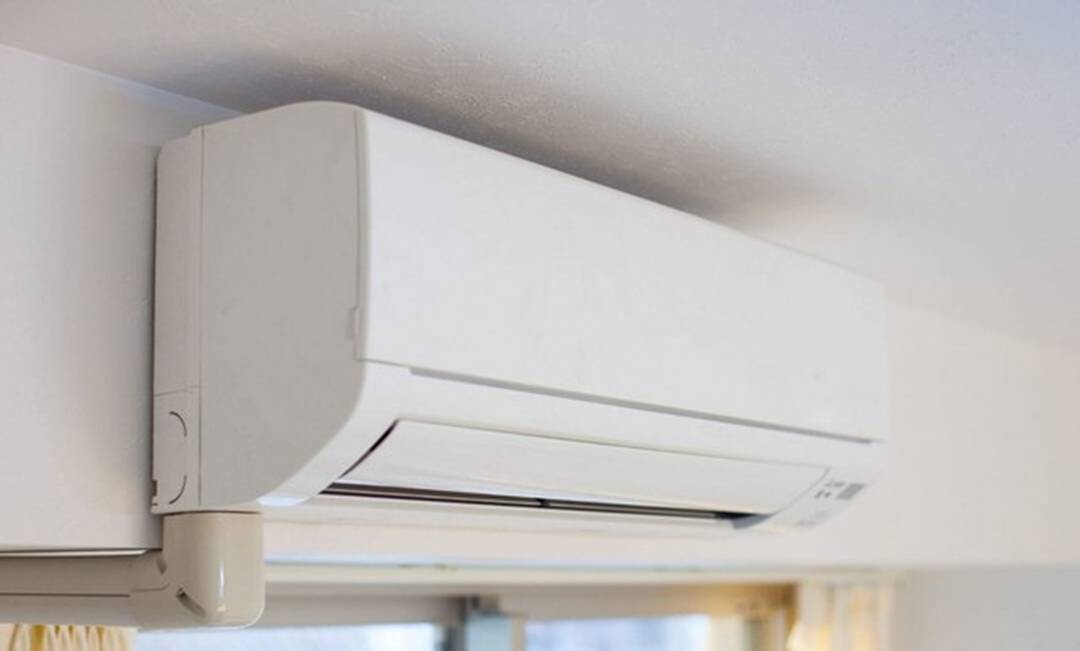
Illustrative image
Expert advice on air conditioner placement
A UK-based engineer with RIBA certification and a significant online following has created a video explaining the optimal location for an air conditioner in a bedroom. In the video, the engineer simulates various positions for the air conditioner, including at the foot of the bed, on either side, and directly in front. However, none of these positions are ideal.
The perfect spot, according to the engineer, is at the head of the bed, slightly offset to the left or right. This positioning ensures a comfortable cooling experience, similar to what most hotels implement, according to the engineer.
The engineer uses a simulation to demonstrate the ideal location for an air conditioner in a bedroom, which is at the head of the bed, slightly offset to the left or right (Video Architect Russell)
This placement ensures that the cool air circulates effectively throughout the room without blowing directly onto the face or body, which can be uncomfortable and even detrimental to one’s health.
Many people mistakenly believe that having the cool air blow directly onto them is the best way to stay cool. However, as mentioned, it can pose potential health risks, especially for the elderly, children, or those with weakened immune systems.
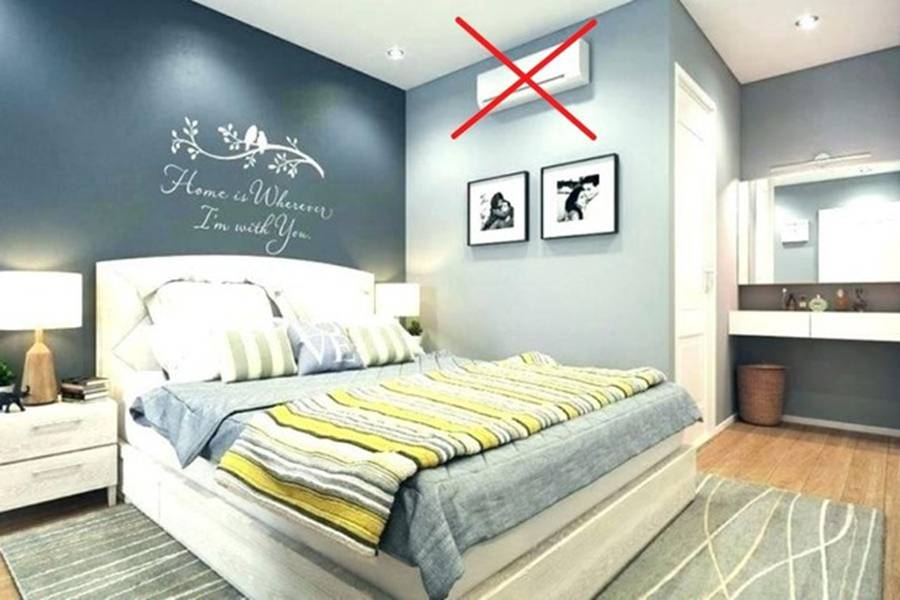
Avoid installing the air conditioner where the cool air blows directly onto the body (Illustrative image)
Yu Chang Zhen, an air conditioning expert with over seven years of experience, shares his insights on Aircondlounge.com: “It may feel good initially as the strong blast of cold air cools you down quickly. But installing the air conditioner opposite the bed and having the cold air blow directly onto you while you sleep does more harm than good. You may experience excessive coldness, dry lips, skin, and eyes, and even headaches upon waking up, as the air conditioner draws out the heat and moisture from your body faster. Overall, the quality of your sleep and your health will be affected by this setup.”
“I remember when I was a child, the air conditioner blew cold air directly onto my face all night. I couldn’t stand it and had to cover my face with a blanket or change my sleeping position to avoid the draft. Having cold air constantly blowing on your face for extended periods is extremely uncomfortable,” the expert added.
Based on the expert’s advice, if you’re planning to install a new air conditioner in your bedroom, consider the ideal position to be at the head of the bed, slightly offset to the left or right. Another good option is to install it at the foot of the bed but on the adjacent wall.
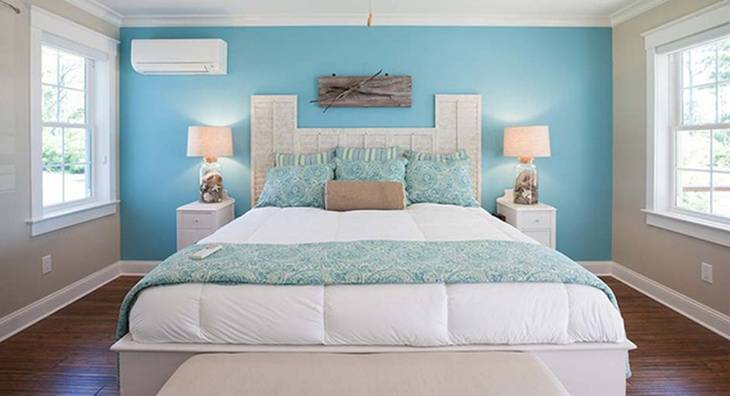
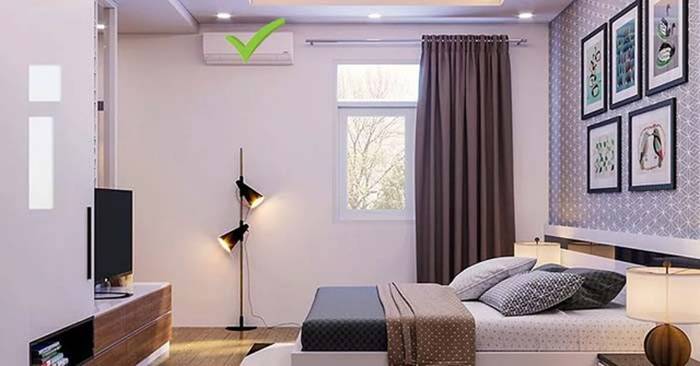
Ideal locations for installing an air conditioner in the bedroom (Illustrative image)
If you already have an air conditioner installed in a different position, consider making adjustments. This advice applies not only to bedrooms but also to other areas of the home, such as living rooms or offices, where it is essential to avoid having the cool air blow directly onto your face, head, or body.
Other considerations for air conditioner placement
1. Avoid installing the air conditioner too high
Experts recommend installing air conditioners at a moderate height, balancing cooling efficiency and convenience for regular maintenance and cleaning. Given that the average ceiling height in modern homes is typically between 2.7 and 3 meters, the optimal height for an air conditioner is around 2.1 to 2.3 meters.
Additionally, it is advisable to leave some space between the top of the air conditioner and the ceiling. A gap of at least 10 to 30 cm is recommended to allow for adequate heat dissipation during the unit’s operation.
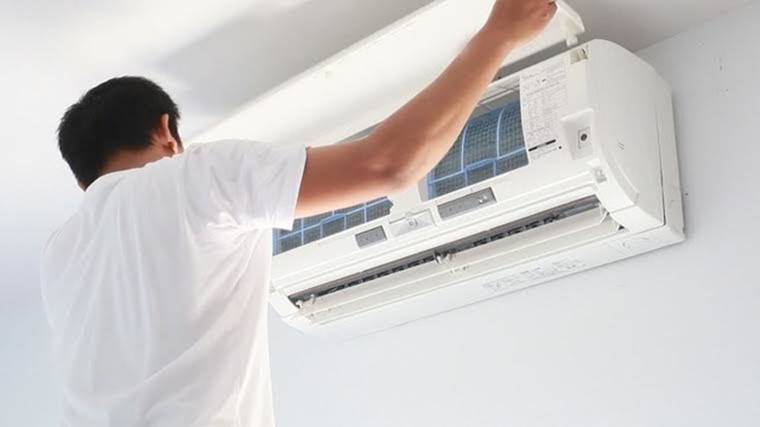
Install the air conditioner at a moderate height for optimal performance and easier maintenance (Illustrative image)
2. Avoid obstructions in front of the air conditioner
It is best to install air conditioners in open spaces, free from obstructions, especially in the area directly in front of the evaporator. For example, avoid installing the unit on top of a cabinet or a large shelf.
Doing so can reduce the efficiency of the air conditioner, leading to unnecessary energy consumption as it struggles to cool the room effectively.
The same principle applies when installing the air conditioner above or near other electronic devices. These devices can block the airflow and even emit heat back towards the air conditioner, causing it to work harder and consume more energy to cool the space.
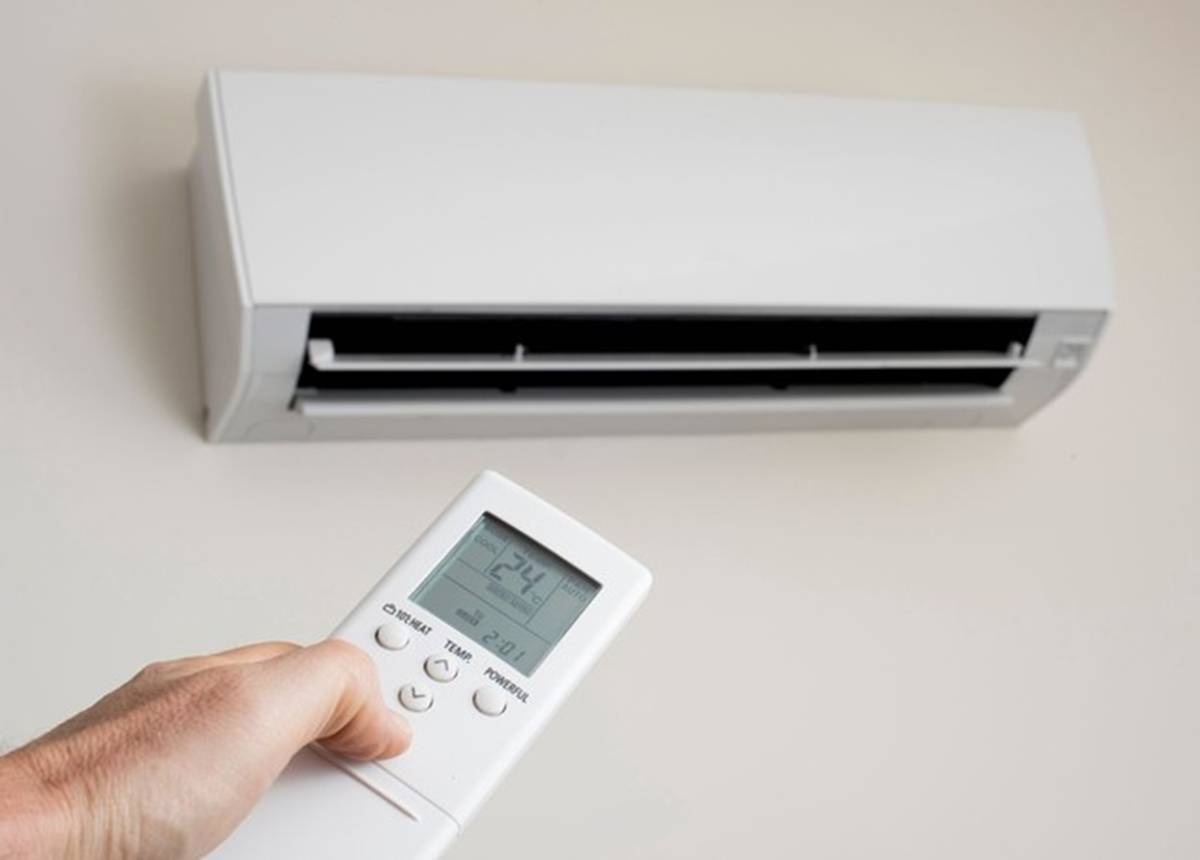
Keep the area around the air conditioner free from obstructions (Illustrative image)
3. Avoid installing the air conditioner near doors
As explained by Home Particle, doors can have gaps that allow cool air to escape. Additionally, frequent opening and closing of doors can cause temperature fluctuations, forcing the air conditioner to work harder to maintain a consistent temperature. Therefore, it is essential to consider this before installing an air conditioner near a door.
According to Nguoiduatin
Exploring the Pros and Cons of Sleeping in an Air-Conditioned Room
Is sleeping with an air conditioner a good idea? As concerns over the adverse effects of air conditioning on our health increase, it’s important to understand the risks and rewards of using air conditioning while sleeping. Let’s examine the benefits and drawbacks of sleeping with an air conditioner, and the protective measures one should take.
Risks of Health Issues from Pesticides Rise After Washing Certain Vegetables
With many vegetables containing pesticide residue, it is important to properly clean them to eliminate potential health risks. In this article, we will be exploring three methods to ensure the removal of pesticides from your vegetables.





































